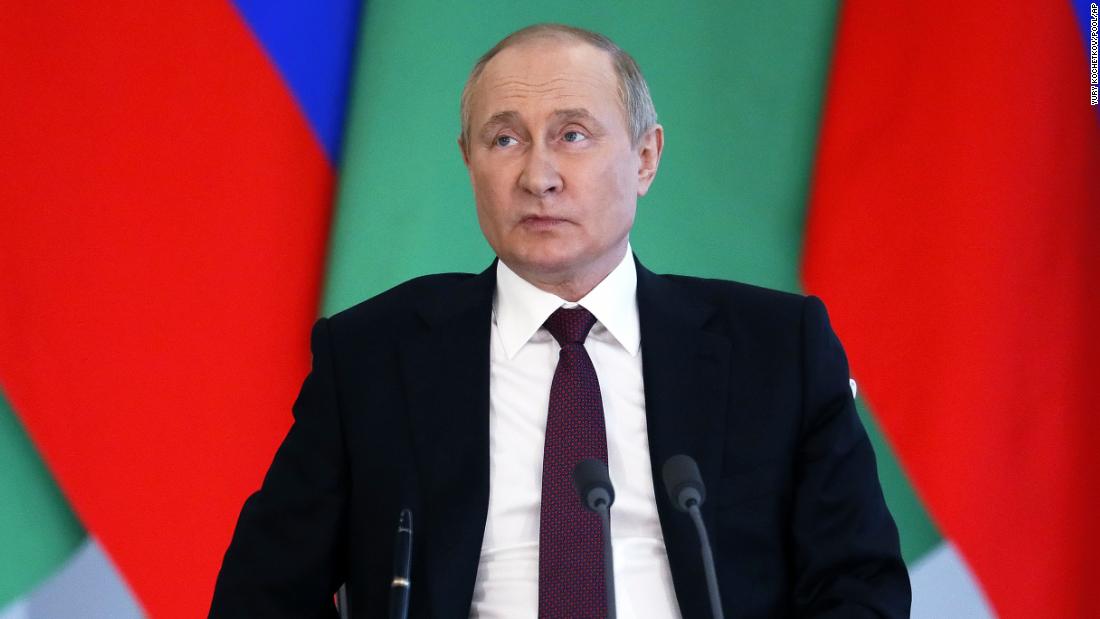[ad_1]
Putin’s words speak for themselves: What he is aiming for in Ukraine is the restoration of Russia as an imperial power.
Many observers quickly picked up on one of Putin’s more provocative lines, in which he compared himself to Peter the Great, Russia’s modernizing tsar and the founder of St. Petersburg — Putin’s own birthplace — who came to power in the late 17th century.
“Peter the Great waged the Great Northern War for 21 years,” a relaxed and apparently self-satisfied Putin said. “On the face of it, he was at war with Sweden taking something away from it… He was not taking away anything, he was returning. This is how it was.”
It didn’t matter that European countries didn’t recognize Peter the Great’s seizure of territory by force, Putin added.
“When he founded the new capital, none of the European countries recognized this territory as part of Russia; everyone recognized it as part of Sweden,” Putin said. “However, from time immemorial, the Slavs lived there along with the Finno-Ugric peoples, and this territory was under Russia’s control. The same is true of the western direction, Narva and his first campaigns. Why would he go there? He was returning and reinforcing, that is what he was doing.”
Alluding directly to his own invasion of Ukraine, Putin added: “Clearly, it fell to our lot to return and reinforce as well.”
Those remarks were swiftly condemned by Ukrainians, who saw them as a naked admission of Putin’s imperial ambitions.
“Putin’s confession of land seizures and comparing himself with Peter the Great prove: there was no ‘conflict,’ only the country’s bloody seizure under contrived pretexts of people’s genocide,” Ukrainian presidential adviser Mykhailo Podolyak said on Twitter. “We should not talk about ‘saving [Russia’s] face,’ but about its immediate de-imperialization.”
Those arguments may have seemed more reasonable before February 24. In the run-up to the invasion, Putin laid out a series of grievances to make the case for war, from NATO’s eastward expansion to Western delivery of military assistance to Ukraine.
But read the transcript of Putin’s remarks on Thursday more closely, and the facade of rational geopolitical bargaining falls away.
“In order to claim some kind of leadership — I am not even talking about global leadership, I mean leadership in any area — any country, any people, any ethnic group should ensure their sovereignty,” Putin said. “Because there is no in-between, no intermediate state: either a country is sovereign, or it is a colony, no matter what the colonies are called.”
In other words, there are two categories of state: The sovereign and the conquered. In Putin’s imperial view, Ukraine should fall into the latter category.
By summoning the memory of Peter the Great, it also becomes clear that Putin’s aims are driven by some sense of historical destiny. And Putin’s project of imperial restoration could — in theory — extend to other territories that once belonged to the Russian Empire or the Soviet Union, something that should raise alarms in all the countries that emerged from the collapse of the USSR.
And that does not bode well for Russia’s future. If there is no reckoning with Russia’s imperial past — whether in Soviet or tsarist guise — there is less chance that a Russia without Putin would abandon a pattern of subjugating its neighbors, or become a more democratic state.
Putin, however, is counting on something of the opposite: For Russia to survive, he argues, it must remain an empire, regardless of the human cost.
[ad_2]
Source link

